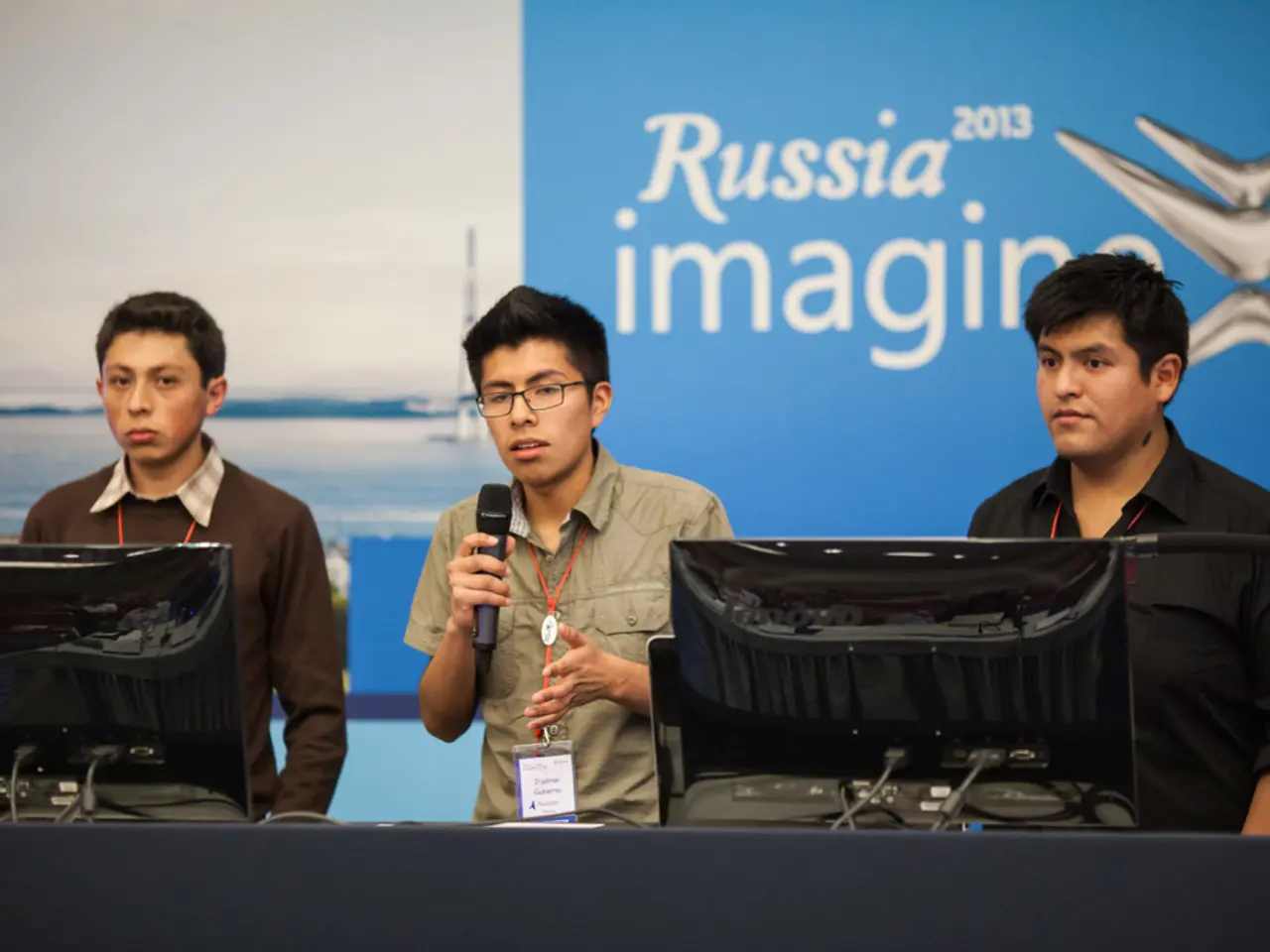The U.S. no longer holds its status as the preferred destination for emerging German tech companies.
In the post-Trump era, the relationship between German and US tech startups is undergoing a significant transformation, marked by a renewed focus on trusted partnerships, digital sovereignty, and strategic innovation.
Despite some reservations, German tech startups continue to attract interest from US investors. A survey reveals that 30% of German tech startups still find US investors attractive post-government change, while 35% express hesitancy towards collaborating with US startups or companies. Remarkably, 7% of German tech startups completely rule out US investors [1].
The shift in sentiment can be attributed to strategic economic and security considerations. Germany remains the US's largest trading partner in Europe and the third-largest global source of foreign direct investment. US companies are actively partnering in Germany on advanced tech infrastructure, such as Deutsche Telekom’s collaboration with Nvidia to build a sovereign data cloud equipped with over 10,000 US-designed chips [2].
However, there is a growing awareness in Germany and Europe about the risks of over-dependence on foreign technology, including from China and the US. The Trump administration's previous unpredictable sanctions and politicization of tech services raised concerns about continuity and control [3]. As a result, Germany and Europe are advancing “digital sovereignty” initiatives, including investing in their own chip manufacturing capacity [3].
Germany's tech startup ecosystem is growing with a strong presence in AI, biotech, mobility, quantum computing, and cleantech. The Future Fund (€10 billion fund launched in 2021) supports startups and scale-ups to remain competitive and reduce relocation abroad, across hubs in Berlin, Munich, and Frankfurt [1]. Munich, in particular, is emerging as a deeptech and mobility hub, complementing Berlin’s traditional startup scene [1].
A prominent example of US-German biotech innovation partnership is the Pfizer-BioNTech COVID vaccine collaboration, which symbolizes the deep US-German biotech innovation partnership built on trust and shared values [2]. The US and Germany seek to extend such collaboration responsibly to protect both innovation and national security.
New EU initiatives like the European Investment Bank’s TechEU fund are mobilizing large-scale capital (about €70 billion plus expected private investment) in emerging tech including AI, health, cleantech, digital infrastructure, and security technologies, creating an expanded market and collaboration opportunities for German and US startups alike [4].
The German government is also taking steps to address the challenges faced by startups. Easier access to public contracts for startups and more venture capital, especially from institutional investors, are priorities [1]. Bitkom President Ralf Wintergerst sees a positive impact from US skepticism, as it presents an opportunity for Germany to strengthen its digital sovereignty and become more independent [1].
In conclusion, the post-Trump relations in tech startups between Germany and the US are characterised by a renewed emphasis on trusted partnerships, digital and supply chain security, and collaborative innovation in strategic sectors such as AI, biotech, and mobility. Germany leverages its strong startup ecosystem and deeptech hubs, supported by EU and national funding programs, while navigating the challenges of technological sovereignty in an increasingly complex geopolitical environment [1][2][3][4].
- Despite some trepidations, US investors remain an attractive option for 30% of German tech startups, while 35% express reservations about collaborating with US startups or companies, with 7% outright ruling out US investors [1].
- Germany's tech sector, prominent in areas like AI, biotech, mobility, quantum computing, and cleantech, is benefiting from initiatives such as the Future Fund, aiming to keep startups competitive and reduce overseas relocation [1].
- New EU initiatives, like the European Investment Bank’s TechEU fund, are mobilizing billions in capital for tech sectors, including AI, health, cleantech, digital infrastructure, and security technologies, creating opportunities for collaboration between German and US startups [4].




